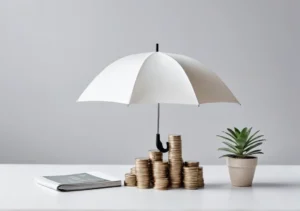Scrounging behind sofa cushions for rent money might score you a fortune in lost change – but it’s no budgeting plan. Nail-biting the days away until your account refills on payday can be a real buzzkill.
In this post, we’ll guide you through the essentials of apartment budgeting, ensuring you’re spending more time enjoying your new digs and less time worrying about the next rent check.
Quick Takeaways:
- Allocate no more than 30% of your gross monthly income to rent to maintain financial comfort.
- Anticipate and budget for additional monthly costs such as utilities, internet, and renter’s insurance to avoid surprises.
- Explore rent negotiation, longer leases, and energy-saving measures to minimize apartment living expenses.
What Should Your Rent Budget Look Like?
When planning to rent an apartment, keeping your living expenses within your financial comfort zone is key. A commonly cited guideline is the 30% rule, which suggests that no more than 30% of your gross (before tax) monthly income should go towards rent.
So, let’s do the math. Say you’re raking in $3,000 a month before taxes. Sticking to the 30% rule, you shouldn’t spend more than $900 on rent. (Rent Budget = Monthly Income x 0.30). Of course, this isn’t a one-size-fits-all situation. If you’re in a city where rents are sky-high, you may need to adjust your expectations—or hunt for a roommate to share the cost.
Here’s a Monthly Apartment Expense Tracker to help you stay on top of your apartment-related finances, ensuring a balanced budget:
| Expense Category | Budgeted Amount | Actual Amount | Notes |
|---|---|---|---|
| Rent | |||
| Utilities | |||
| Internet/Cable | |||
| Parking | |||
| Laundry | |||
| Renter’s Insurance | |||
| Total Expenses |
Use this table to compare your budgeted apartment expenses against actual costs, identifying areas where you can adjust spending. Remember, staying flexible and reviewing your expenses regularly can help you avoid financial surprises and maintain control over your apartment budget.
Remember, this is a starting point. You’ve got to consider your unique financial situation. Do you have hefty student loans? Credit card debt? Don’t let those get lost in the shuffle.
How Can You Plan for Utilities and Other Monthly Expenses?
Beyond the rent check, a slew of other expenses will be vying for a chunk of your paycheck. Here’s the breakdown of typical monthly expenses you’ll want to budget for:
- Utilities: Often, renters foot the bill for utilities like water, gas, and electricity. Costs can fluctuate but budgeting around $100-$150 a month can save you from unpleasant surprises.
- Internet and Cable: In today’s connected world, internet is pretty much a necessity. A decent internet package could set you back about $50-$100 each month.
- Parking Fees: If you’ve got wheels, monthly parking can cost anywhere from $50 to a couple hundred bucks, depending on your city’s rates.
- Laundry: If in-house laundry isn’t available, you’ll need to stash some quarters for laundromat visits, usually around $20-$30 monthly.
A nifty tip? Track your utility usage over time to find patterns and see where you might be able to cut back. And don’t forget to include a little wiggle room for fluctuating costs or unexpected expenses.
Do You Need Renter’s Insurance?
Now, let’s talk protection for your pad. Many renters overlook renter’s insurance, but it’s as crucial as a sturdy lock on your door. This superhero in policy form covers your belongings in case of theft, fire, or other damages.
The average cost? Somewhere in the ballpark of $15-$30 a month—a small price for peace of mind. When shopping around, companies like Lemonade offer competitive pricing and an easy sign-up process.
Adding renter’s insurance to your budget plan means factoring in another line item, but it’s a wise move. Make sure to shop around; prices and coverage can vary, and there are often discounts for things like bundling with your auto insurance.
So there you have it. With proper planning, you can stride confidently into your apartment renting journey, budget in hand. And don’t worry, there’s more helpful content to come after these essentials. Keep reading for further insights on making your rental experience smooth sailing.
What Are Some Hidden Costs In Apartment Living?
When you’re scouting out that perfect pad to call home, you might feel like you’ve got all your ducks in a row. Rent? Check. Utilities? Probably got that covered, too. But, let’s dive into some sneaky costs that can blindside even the savviest of budgeters.
Laundry: Not all apartments come with in-unit washers and dryers. If you’re trekking to a laundromat or using coin-operated machines, those quarters add up faster than you can say “spin cycle.”
Renters Insurance: It’s not just a good idea; in many cases, it’s a requirement. This unsung hero protects you from the unexpected, like fires or theft. Just don’t let the peace of mind drain your wallet—shop around for a policy that fits your budget without skimping on coverage.
Parking: If your apartment complex is in a hot spot, parking could be a premium feature. We’re talking about extra monthly fees for a dedicated space, or even the dreaded street parking game, which might have you circling blocks every evening.
Maintenance Fees: Sure, a dripping faucet might be fixed at no cost to you, but some places have monthly ‘amenity’ or ‘maintenance’ fees baked into the rental cake—this could be for anything from gym access to pest control services.
Pet Fees: Fido and Fluffy are part of the family, but your landlord might see them differently. Expect a pet deposit, plus potential pet rent, adding a chunk to your monthly expenses.
Here’s a pro tip: when you first tour an apartment, ask the landlord or leasing agent to detail all potential costs. Getting this info upfront will help you budget better than a bargain hunter at a clearance sale.
How Can You Save on Apartment Costs?
You’re in luck—there are some nifty tricks to keep your wallet as full as a landlord’s schedule on the first of the month.
Negotiate your rent: Sounds daunting, but it’s doable, especially if you’re renewing a lease. Come prepared with research on local market rates and be ready to highlight your value as a tenant. A little chutzpah can go a long way.
Opt for a longer lease: Landlords love stability, and sometimes, they’ll swing you a deal if you’re willing to sign on for more than a year. Just ensure you’re really ready to commit!
Be utility savvy: Cut power costs by investing in energy-efficient bulbs and appliances. Don’t let that tap drip or the AC blast when you’re not home. Small changes stack up to big savings over time.
Split wisely with roommates: Sharing is caring, and in apartment land, it also means saving. Just make sure to lay down the financial groundwork with a good ol’ roommate agreement to avoid any cash-related kerfuffles.
Renter-friendly amenities: Now, here’s something you won’t see on every blog—opt for apartments that invest in solar power or other green initiatives. Yes, the rent might be a slice higher, but the utility savings can be significant, making it a wise long-term play.
Remember, every dollar you save is a dollar you can spend on something you love (or stash away for a rainy day). So, while you’re soaking up the vibe of your new neighborhood or enjoying the view from your window, rest easy knowing you’re also maximizing your hard-earned cash.
By adopting a bit of a detective’s mindset, you can sniff out the hidden costs and sidestep them with savvy saving strategies. It’s all about asking the right questions, doing your homework, and keeping an eagle eye on the prize—financial peace in your new apartment home.
As a financial advisor, my goal is to guide you through the world of personal finance with clear, practical advice. With a dedication to clarity and your financial well-being, I’m here to provide insightful guidance and support as you build a foundation of wealth and security.







